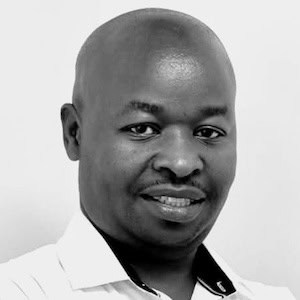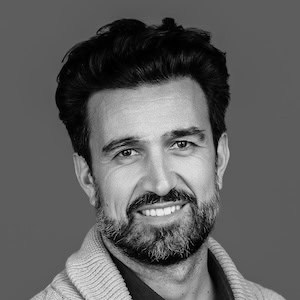-
Reversing Climate Change is Possible — But First, We Need to Democratise Climate Finance
Much of the current conversation around climate change focuses on the obstacles that make the problem so difficult to solve. But according to Kevin Kyer at Pyrpose, there are signs of hope, as a growing, global sense of urgency around the issue is driving consumers to embrace sustainable products and behaviors. He explores how emerging technologies and businesses are helping to reduce Co2 emissions — and how platforms like Pyrpose can help mobilize climate-conscious investors to direct climate finance to the most vulnerable parts of the world.
- Categories
- Environment, Investing
-
More Data is Not the Answer: Why We Need to Reset Our Expectations for Impact Measurement and Management
Impact measurement and management (IMM) is gaining momentum. As Julia Mensink at Acumen explains, while the sector was once underfunded and under-emphasized, it is now taken much more seriously — not only by impact investors, but also by mainstream banks, pension funds and corporations. But she argues that this progress has brought with it some challenges, including investors' growing demand for rigorous impact data, regardless of the challenges this data collection and reporting may present to entrepreneurs. She proposes some ways investors can work with social enterprises to shift IMM from a burden to a means to greater impact.
- Categories
- Investing, Social Enterprise
-
Building Businesses, Rebuilding Lives: A Holistic Approach to Supporting Refugee Entrepreneurship
For refugees, running a business is often a big part of their efforts to rebuild their lives. Jacinta Mutie, Paul Karanja and Patrick Guyer at RefugePoint share learnings from RefugePoint‘s comprehensive refugee entrepreneurship support initiative, exploring how the program provides refugees with the stability, business skills and funding they need to move themselves and their households along their path towards self-reliance.
- Categories
- Education
-
Promoting Financial Inclusion in the Caribbean: A Broken ATM in the Bahamas Reveals the Need for Digital Banking Solutions Across the Region
Imagine if your only access to your salary and savings depended on a single ATM. Now imagine that someone takes a hammer and smashes it up. As Nicholas Rees at Kanoo Pays explains, that was the situation facing a community in The Bahamas after vandals damaged the district’s sole ATM. He discusses the challenges experienced by remote, cash-dependent populations across the Caribbean, and explores how Kanoo Pays' digital wallet leverages offline payment capabilities and Central Bank Digital Currencies to address these customers' unique needs.
- Categories
- Finance, Technology
-
Under-Leveraged Best Practices for Scaling Productive Use of Energy Appliances: Part 2 — Financing Options
Productive Use of Energy (PUE) appliances are the subject of growing attention in the development sector, but manufacturers and distributors are facing a number of challenges and misconceptions that are limiting uptake of these devices. In the second article of a two-part series exploring best practices for selling PUE appliances, Thomas Charoy and Lucie Klarsfeld McGrath at Hystra discuss the affordability challenge, sharing solutions for handling the high level of working capital and financial skills required to offer financing options to end-users.
- Categories
- Agriculture, Energy, Finance, Technology
-
The Future of Digital Credit: A Recent Report Explores How to Make its Second Decade More Impactful Than its First
The first online lending platforms began emerging roughly two decades ago, and since then, the global digital credit market has grown to reach many formerly excluded customers. But according to Dan Cassara, previously at CEGA, this growth has raised concerns about over-indebtedness, exploitation and scams. As the market looks toward the coming decades, he shares a recent report that investigates digital credit — particularly Mobile Instant Credit and airtime loans — and explores approaches that can better protect consumers and support their financial health.
- Categories
- Finance, Technology
-
Inclusion Requires Interoperability: Why All Digital Financial Services Should be Interoperable
As of 2021, there were 1.4 billion financially excluded people globally — over 1 billion fewer than there were in 2011. As Briana Marbury at the Interledger Foundation explains, mobile money and other digital financial products and services have helped to drive this progress, reaching populations that have traditionally been excluded. But she argues that this momentum has highlighted an emerging issue that could limit the impact of the growth in financial inclusion: the lack of interoperability between digital systems.
- Categories
- Finance, Technology, Telecommunications
-
Empowering the Underserved: A New Report Highlights the Impact of Off-Grid Energy Solutions — And Some Emerging Challenges
Up to 674 million people living in the world's most vulnerable communities are projected to remain unelectrified by 2030. According to Kat Harrison at 60 Decibels, the off-grid sector could reach these customers, if these energy businesses and organizations are given the right support to successfully scale. She shares insights from a new 60 Decibels report, based on interviews with 79,000 energy customers in over 30 different countries over the last three years, which highlight some adjustments the sector could make to reach hundreds of millions of excluded customers.










